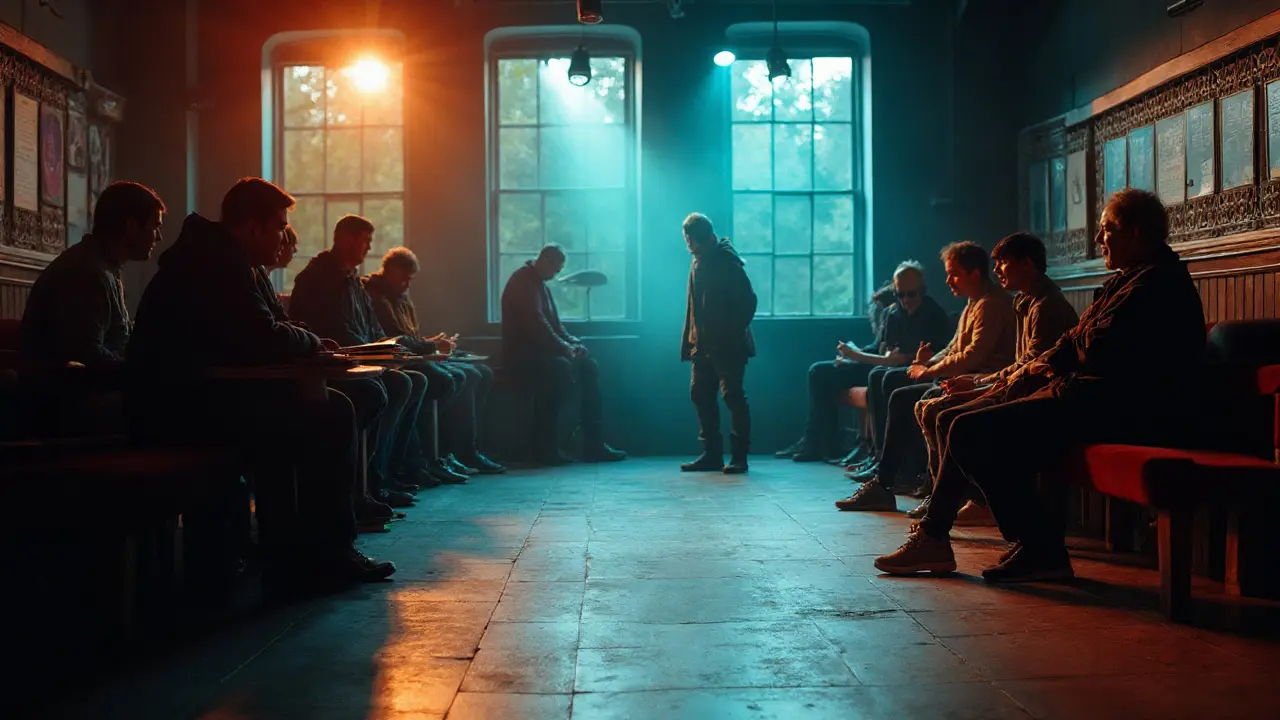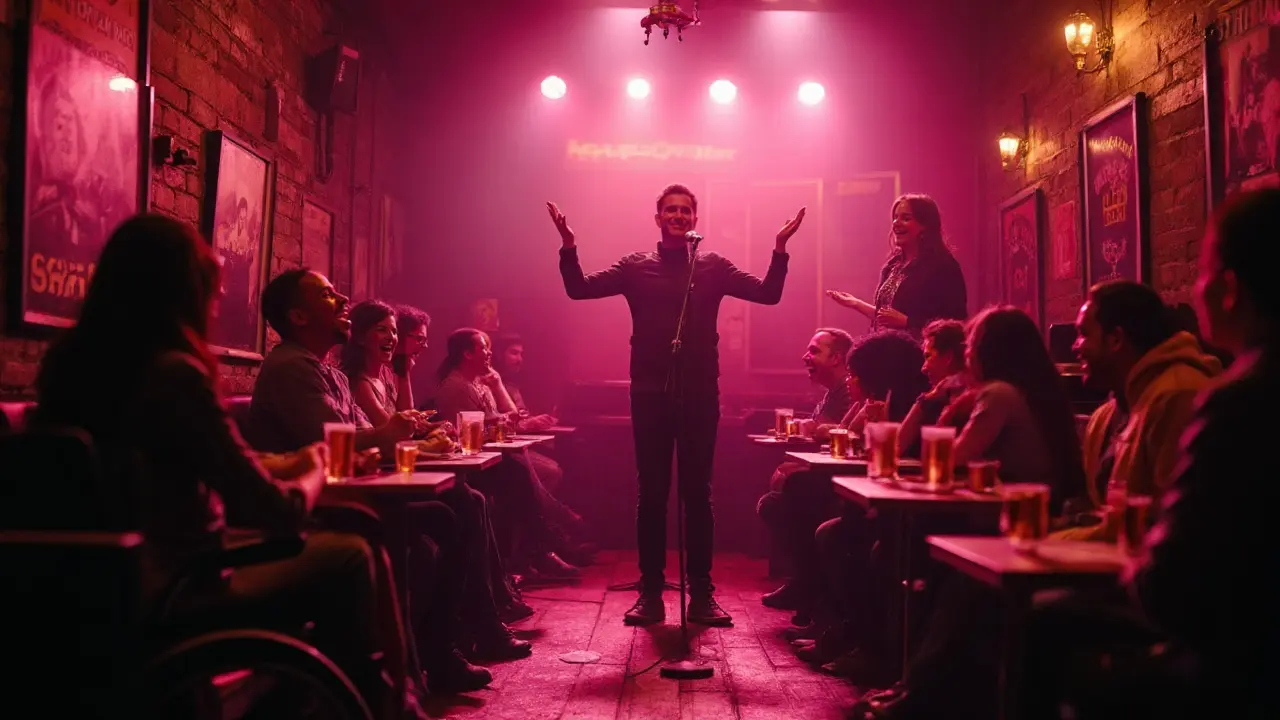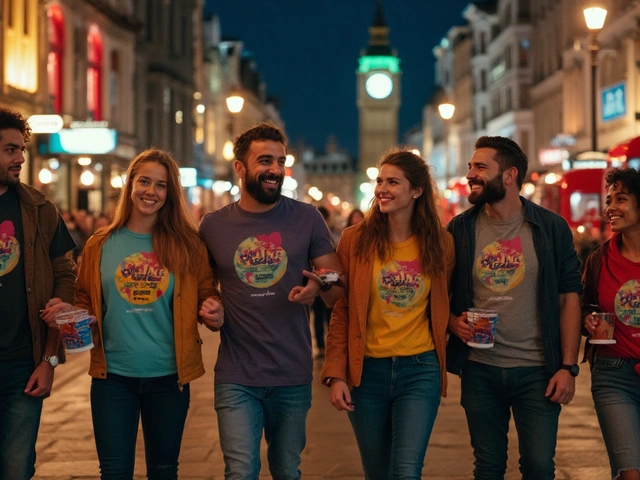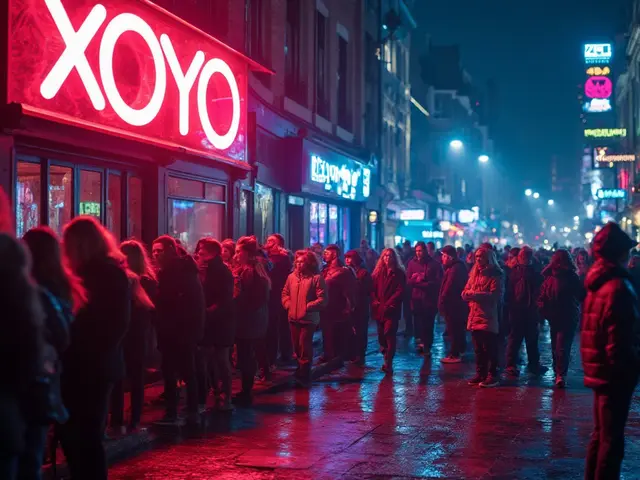On a packed Central line after midnight, I’ve watched strangers swap punchlines across accents, faiths, and football loyalties. That’s the promise of comedy in London: a city where laughs travel faster than the Tube. This piece shows how comedy shows are actually bridging cultural gaps in London-what makes it work, where to see it, how to run it well, and how to keep the room both brave and kind. You’ll get a clear overview, practical steps you can use tonight, local examples from Soho to Stratford, and a quick toolkit to dodge the usual pitfalls.
TL;DR: How comedy brings cultures together in London right now
- Comedy works as a low-risk way for Londoners to meet across lines-accent, ethnicity, class, and borough-because shared laughter lowers social distance and opens people up to new viewpoints.
- The best rooms use mixed line-ups, a strong host, and clear house rules; they make space for difference without making anyone the punchline.
- If you’re picking a night, look for diverse bills at Soho Theatre, The Bill Murray, Top Secret, Up the Creek, Backyard, Hackney Empire, Theatre Royal Stratford East, and seasonal festivals like Greenwich Comedy Festival.
- Organisers: book across communities, write a short conduct note, brief the MC to translate references, and build in two-way moments (crowd chats, post-show hangs) where connection actually happens.
- Comics: use personal stories, context, and “punch up” logic. Test mixed-room sets in Angel or Bethnal Green; refine with honest feedback before bigger shows like Live at the Apollo tapings or Leicester Square gigs.
How comedy actually bridges gaps: mechanisms, steps, and room design
Why does a comedy room in London succeed where a town-hall panel stalls? A few mechanics explain it:
- Shared emotion: Laughing together synchronises people, even if they arrived with different priors. Neuroscience studies have shown that shared laughter cues group bonding; audience members feel part of the same team for an hour.
- Contact that feels safe: Allport’s contact hypothesis says prejudice drops with positive, equal-status contact around shared goals. A comedy night is precisely that: strangers sit equal, aiming to have a good time, guided by a host.
- Benign violation: Good jokes poke norms without making the room tense. That balance lets people approach touchy topics (race, class, religion) without retreating into defence mode.
Ofcom’s Media Nations reporting has repeatedly put comedy among the UK’s most-watched genres, especially for younger audiences. More reach means more mixed rooms. And British Council research has long argued that culture builds trust across borders. That’s the background; here’s how to put it to work in London rooms today.
“Culture is one of the UK’s great connectors. Shared cultural experiences can build trust between people who might never otherwise meet.” - British Council (cultural relations research series)
Step-by-step for organisers programming in London:
- Define the bridge you want to build. Be specific: “South Asian acts with East London new parents,” or “LGBTQ+ comics with local faith leaders in the audience.” Vague goals get vague results.
- Book across communities. Mix established names and new voices; combine circuits (club, alt, community nights). In London, that might mean pairing a Desi Central regular with an Angel Comedy favourite and a Hackney Empire alumnus.
- Write a 100-word code of conduct. Put it on the event page and the mic stand: “Punch up, not down; debate ideas, don’t mock identities; we remove heckling that targets individuals.” Clarity prevents messy interventions mid-show.
- Use a translator-host. Your MC should explain references, translate slang, and welcome difference. The best London MCs do quick audience chats-postcode, origin, football team-and find playful common ground.
- Sequence the bill. Start with a warm, universal opener; place your spiciest material after the room trusts you; end with a unifier (shared city joke, music bit, call-and-response).
- Make the interval useful. Encourage bar staff to seed conversations (“Where did you travel from?”). Put a prompt on table cards: “Tell someone your funniest London transport story.”
- Offer access points. London audiences are mixed in ability and language comfort. Caption screens, BSL-interpreted sets, or short glossary cards for heavy dialect shows are a game-changer.
- Debrief after. Ask door staff: Who walked, and why? What jokes made strangers talk to each other? Capture two actions to test next time.
Step-by-step for comics trying cross-cultural material:
- Start with your lived truth. Jokes land across cultures when they’re rooted in specifics: your nan’s Brixton market haggle, your first day at a Canary Wharf office, the chaos at Stratford station.
- Add context in one line. If you mention Eid, Notting Hill Carnival, or Shabbat, give a six-word explainer before the punchline so you don’t leave half the room behind.
- Pressure-test in mixed rooms. Try The Bill Murray’s new material nights, Top Secret’s early weekday shows, and Backyard’s open mics. Watch who laughs and who leans back.
- Trim collateral damage. Swap identity-targeting tags for situation-targeting tags. Instead of “X people are…,” try “I was an idiot because…”
- Plant a unifier. End on a London-ism that everyone shares: rent pain, Tube delays, the weather’s betrayal, Arsenal optimism.
Step-by-step for workplaces and schools in London using comedy:
- Choose facilitators, not just comics. Look for performers with corporate or education experience who can run exercises, not only sets.
- Set the brief: build understanding, not roast the office. Ban jokes about individual colleagues; welcome jokes about shared processes.
- Run a “story swap” exercise. Pairs tell 60-second origin stories, then introduce each other to the room. Laughter follows, empathy sticks.
- End with a light code phrase. E.g., “No punchline without context.” People remember it, and it shapes future chats.

London examples and case studies: rooms where bridges happen
The city has dozens of nights where cultural mixing isn’t a side effect-it’s the point. Here are standouts Londoners tell me about, plus what actually makes them work.
- Soho Theatre (Soho): Home for international acts and British voices that punch above their room size. They routinely platform comics touring from Lagos, Mumbai, Melbourne, and beyond. Staff are proactive with access, including captioned shows on selected dates.
- The Bill Murray / Angel Comedy (Islington): A lab for new material and mixed audiences. The late shows feel like a mini-United Nations on stools: expats, students, long-time locals. Their courses help comics stress-test delicate material with good feedback culture.
- Top Secret Comedy Club (Covent Garden): Affordable tickets, big names dropping in, and a tourist-local blend. MCs are ace at turning a Tower Hamlets nurse and a Brazilian coder into a running joke everyone adopts for the night.
- Backyard Comedy Club (Bethnal Green): East London’s melting pot, with charity nights and community bills that bring in varied audiences from across Tower Hamlets and Hackney.
- Up the Creek (Greenwich): A classic room with themed nights like The Blackout that invite brave newcomers. You’ll see South-East London’s mix-Ghanaian aunties, Polish builders, creative grads-cheering together.
- Hackney Empire (Hackney): Big-stage specials for Black British comedy, Caribbean and African diaspora line-ups, and marquee tours that pull multi-generational crowds.
- Theatre Royal Stratford East (Newham): Theatre-led comedy that brings in local families and youth groups; their comedy-adjacent programming often opens doors for first-time attendees.
- Greenwich Comedy Festival (late summer): An outdoor run that pairs TV names with circuit killers, with picnic blankets full of mixed groups who wouldn’t usually share a row indoors.
- Desi Central (various venues, often Indigo at The O2): South Asian-led bills that explicitly welcome everyone. Smart hosts translate cultural references without slowing the pace.
- Live at the Apollo (Hammersmith): TV tapings that normalise diverse line-ups nationwide. You’ll leave having seen styles you’d never search for on your own.
Television matters too. Taskmaster (shot in West London) and panel shows like Have I Got News for You are not “community nights,” but when they platform voices from different backgrounds, they seed curiosity that pushes people to try live rooms. BBC Asian Network’s comedy projects and the wave of specials from British-Nigerian, British-Polish, and British-Somali comics have nudged audiences to go exploring IRL in Zones 1-3.
Want a quick snapshot of what to expect? Use this as a practical guide, not a promise-London changes fast.
| Venue/Series | Neighbourhood | Typical Audience Mix | Ticket Range | Access/Notes |
|---|---|---|---|---|
| Soho Theatre | Soho (W1) | Local creatives, international visitors, late-night crowd | £12-£28 | Frequent captioned shows; global touring acts |
| The Bill Murray (Angel Comedy) | Islington (N1) | Students, expats, comics, locals | Pay-what-you-can / £7-£15 | New material labs; friendly for mixed-language audiences |
| Top Secret Comedy Club | Covent Garden (WC2) | Tourists, after-work crowd, regulars | £1-£15 (early) / up to £25 weekends | Frequent drop-ins by TV names; strong MCs who translate references |
| Backyard Comedy Club | Bethnal Green (E2) | East London mix; charity/community nights | £8-£20 | Spacious room; good for group outings |
| Up the Creek | Greenwich (SE10) | South-East London locals, students, families | £10-£22 | The Blackout open mic; lively weekend energy |
| Hackney Empire Specials | Hackney (E8) | Multi-generational, diaspora-heavy crowds | £15-£35 | Big stages; culturally specific bills with broad welcome |
| Desi Central | Various (incl. The O2 Indigo) | South Asian-led + mixed Londoners | £15-£30 | Hosts translate cultural references; lively crowd work |
| Greenwich Comedy Festival | Greenwich (SE10) | Picnic festival vibe, mixed ages | £20-£40 | Outdoor tents; family-friendly slots and late shows |
Getting there matters. If you’re crossing the city, plan last Tube times or Night Tube on weekends (Central, Victoria, Jubilee, Northern, Piccadilly). Many venues finish by 10:30-11pm; late shows can stretch closer to midnight. Londoners will tell you: a smooth journey home keeps the post-show chat going.
One more note about TV-to-live spillover: when a comic moves from Live at the Apollo or Taskmaster to a room like The Bill Murray, audiences turn up with trust. That mixed crowd is the opportunity: a night that blends a TV-fan couple from Richmond, a Nigerian-British family from Peckham, and a French Erasmus student in King’s Cross is fertile soil for new bridges.
Checklists, pro tips, and your mini-FAQ
Quick checklists you can use today:
For audiences picking a bridging night in London:
- Scan the line-up. At least three distinct backgrounds/voices? Good sign.
- Look for host notes. Does the event state house rules or an inclusion note? That’s a mature room.
- Check access. Captioned performance dates? BSL interpreter? Step-free entry? Soho Theatre and some Southbank shows lead here.
- Read recent crowd feedback. Instagram comments and Google reviews often mention “welcoming” or “diverse audience” if it’s true.
- Mind the late show vibe. Earlier shows skew broader; late shows get rowdier. Choose the energy you want.
For organisers and promoters:
- Two-rider rule: a technical rider and an inclusion rider (pronouns, access, heckle policy, no hate speech).
- Set your opener and host early. They carry the cultural translation load-pay them properly.
- Brief staff. Door teams need a one-minute script for policy and a plan for graceful ejections if needed.
- Invite local groups. Message community orgs (youth centres, faith groups, student societies) with a discount code to seed a mixed room.
- Measure conversation. Encourage post-show hangs in the bar; note how many strangers mingle. That’s your KPI for “bridging.”
For comics writing across cultures:
- Use the 70/30 rule. 70% universal (family, money, housing, travel), 30% cultural spice with context.
- Test the temperature. If a premise divides the room, add permission (“This is about me, not you”) or find a shared villain (bureaucracy, landlord, algorithm).
- Swap labels for specifics. The more concrete the detail, the less it feels like stereotyping.
- End with a bridge-back. Tie your closer to the city you’re in-London laughs at London.
Common pitfalls and how to dodge them:
- Punching down: Targeting identities instead of power or behaviour shrinks the room. Use “punch up” as your north star.
- Reference overload: Three unexplained cultural references in a row will lose half the audience. Translate one; show the second; drop the third.
- Unmanaged heckles: Banter is fine; targeted abuse isn’t. Give the MC a two-step ladder: warn once, eject calmly.
- Token booking: One “diverse” act on a homogenous bill reads as quota. Mix the whole night.
- No cool-down: Hard topics need a warm closer or a host to re-knit the room before they leave.
Mini-FAQ
- Is it okay to joke about accents? Yes, if the target is you or a shared situation, not a community. Add context and self-awareness.
- Do bilingual shows work in London? They do, especially with quick translations or projected surtitles. Angel and fringe rooms host them often.
- What if a joke offends part of the room? Hosts should acknowledge, reframe, and move on; comics can tag with a humanising beat (“Here’s why it matters to me”).
- Are there family-friendly bridging shows? Yes-festival matinees and theatre-led bills in Stratford and Southbank often suit mixed-age groups.
- What’s a fair London ticket price for diverse line-ups in 2025? £10-£25 for clubs; £25-£40 for bigger theatres/festivals; pay-what-you-can nights exist for tighter budgets.
Next steps:
- If you live here: Pick one neighbourhood outside your usual orbit (e.g., if you’re West, try East). Grab two friends who don’t know each other and go midweek.
- If you’re an expat: Start with hosts known for translating references-Soho Theatre and Top Secret are safe bets-then try community-led nights (Desi Central, Afro-centric specials at Hackney Empire).
- If you’re HR/education in London: Pilot a 60-minute comedy workshop with a facilitator-comic; aim for mixed teams and set light guardrails.
- If you’re a comic: Build a five-minute chunk on a universal London pain (rent, commuting, weather) and add one cultural story with context. Test it twice in Angel; once in Bethnal Green; adjust.
Troubleshooting real scenarios:
- The room splits on a sensitive bit: Host steps in to summarise both sides with warmth, adds a neutral gag, then resets energy with a new act.
- Heckler targets identity: One warning framing house rules; immediate removal if repeated. The rest of the audience will thank you.
- Mixed-language table looks lost: MC does a quick explainer and offers an extra beat on punchlines. Visual bits help; crowd work can include them without spotlighting uncomfortably.
- Post-show tension at the bar: Designate a friendly staffer to check in, offer water, and move people into fresh conversations.
Bridging culture isn’t magic; it’s craft. London has the right ingredients: density, difference, and a citywide shared sense of humour about delays, drizzle, and the price of a pint. When a line-up respects that-and a host invites everyone in-the room becomes a small version of the city we want. Scan tonight’s listings for London comedy shows, pick a room that mixes voices, and go watch strangers become neighbours for an hour.




